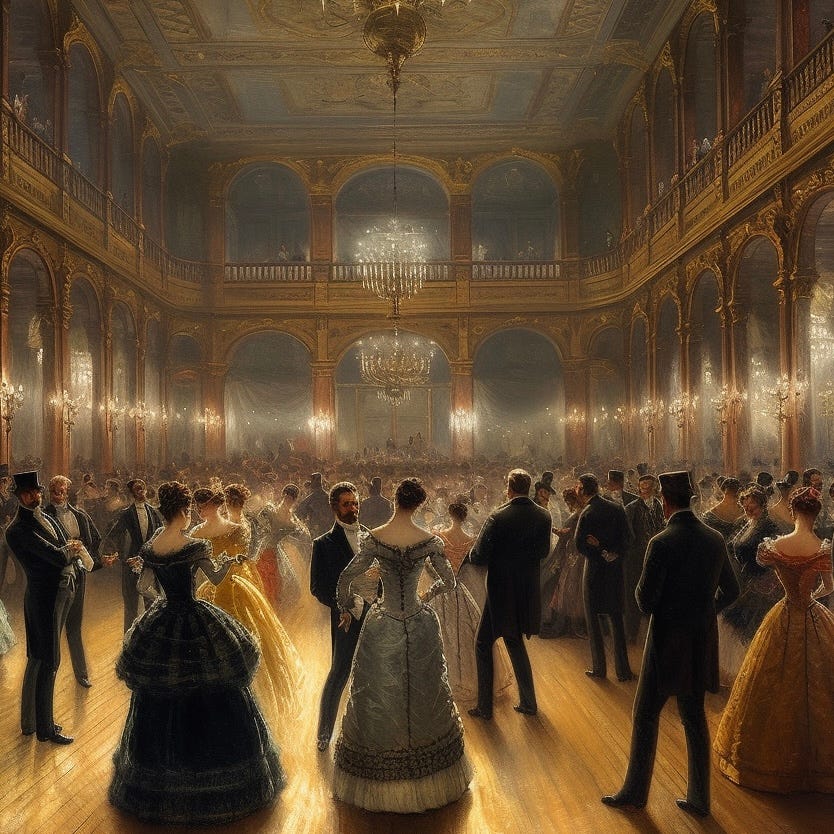The Ball
An old woman sat on a gilt chair against the wall of a crowded ballroom. Her face was powdered and lightly rouged. She wore a diamond tiara and white gloves. The débutantes giggled at her from behind their fans. But those who had known her for many years were more respectful; and when they locked eyes with her as they waltzed past, they smiled before whirling away.
As the orchestra struck up a rendition of the “Radetzky March” a footman in full livery approached. He bowed low and extended his hand.
“I’m afraid the ball has ended for you.”
“But no one asked me to dance,” the old woman said.
“No one was obliged to. You waited too long.”
He helped her out of the gilt chair.
“It’s not fair,” she lamented. “It ended so quickly.”
“You spent most of the time watching the other guests dance.”
“I never learned to waltz.”
The footman shrugged. “You never tried to learn.”
“How did I get here? Where am I to go? I no longer know the way home.”
“That’s of no concern to me. My instructions are to escort you out.”
The old woman knew the host was watching, though she knew not where he was.
The footman guided her over the parquet floor. The débutantes turned away in embarrassment. The older guests who had known her for so many years no longer seemed to recognize her. If they looked at her at all, it was with a scowl since she was now in the way and diminishing their enjoyment of the ball.
Her fading eyes took in the lofty room she was being ejected from. The candles in the chandeliers had never burned so bright; the laughter of the guests had never seemed so gay. Within seconds, an oak door slammed shut like a coffin lid. And the old woman stood blind, confused and alone in the cold night air.
This parable came to me the other day after reading a powerful short story by Adrian Conway titled “Communal”. The brevity of Adrian’s story reminded me of the so-called “telegram tales” of a famous fin-de-siècle Viennese feuilletonist named Peter Altenberg. I may post some translations of Altenberg’s stories next month.
In the meantime, I’m about to go on a vacation so I don’t know that I will be able to post anything on Substack over the next couple of weeks. I decided that a parable like this would be a more fitting “final piece” for me to be remembered by if my heart gives out over the Atlantic, than a middle chapter of an unfinished novel.



Brutally great, Daniel- I love a good parable. And the choice of period influence is very intriguing, too. Congrats to Adrian for providing the inspiration- very cool! Enjoy your break from the stack-world.
Daniel, once again you deliver. The period and setting were perfect for the parable. Thanks for reminding us to get out there and dance.